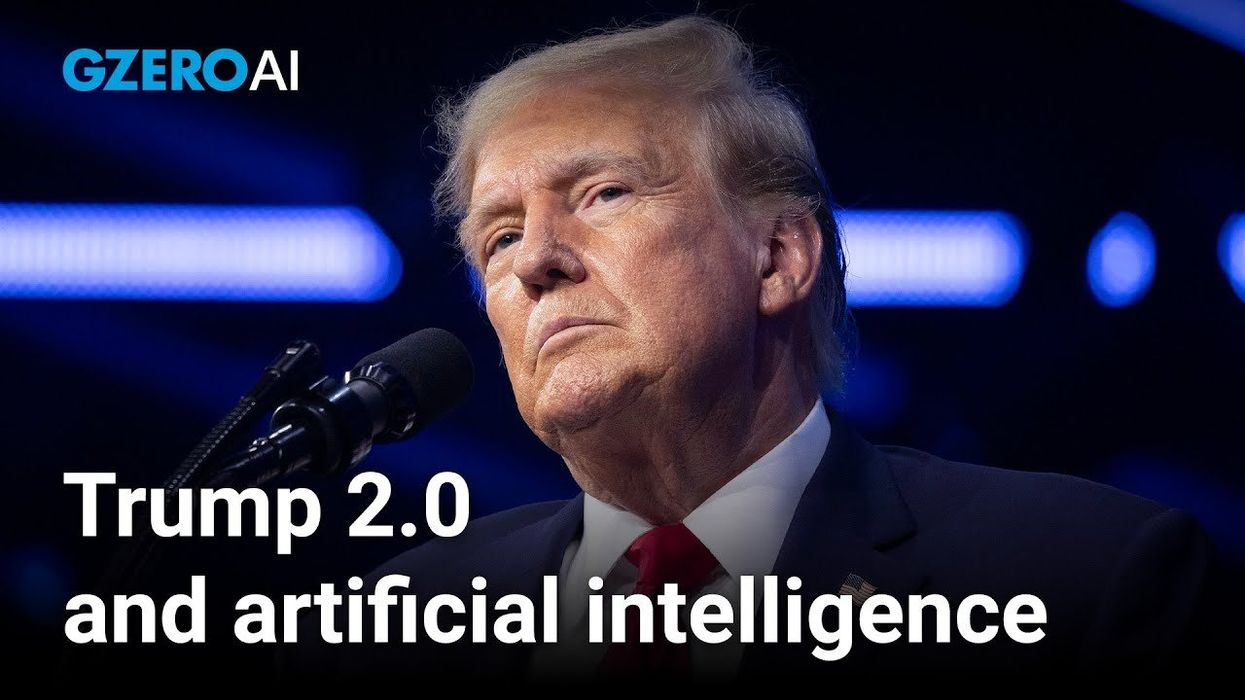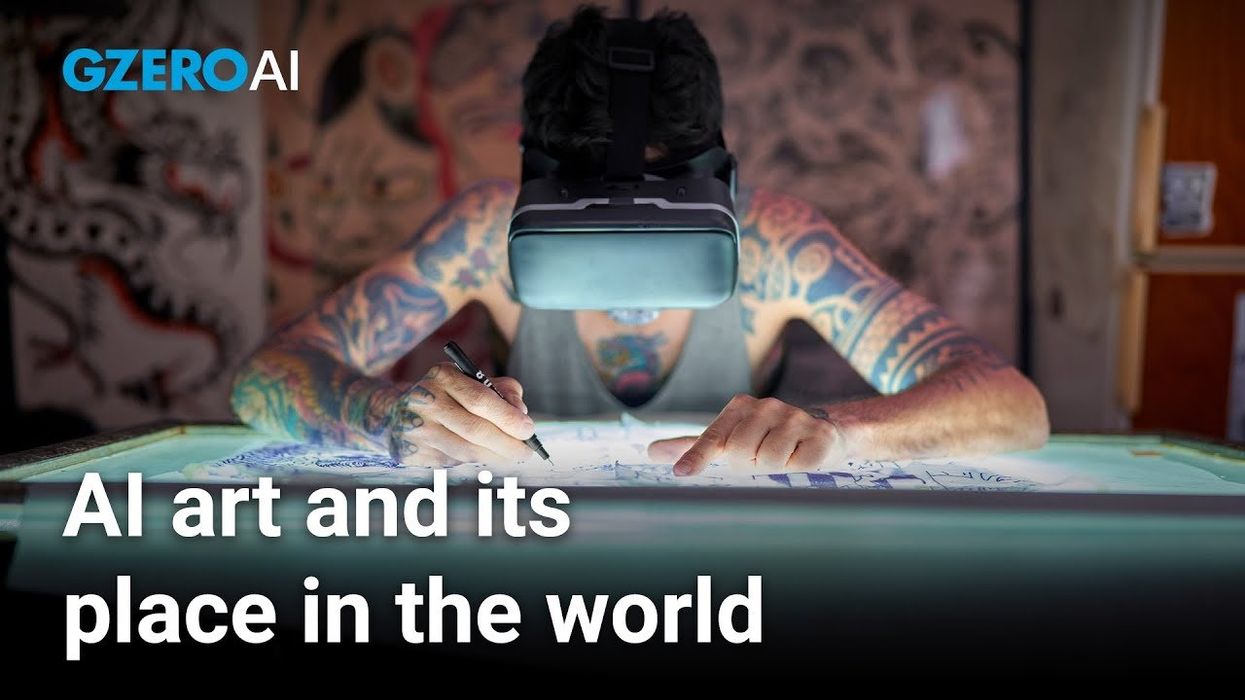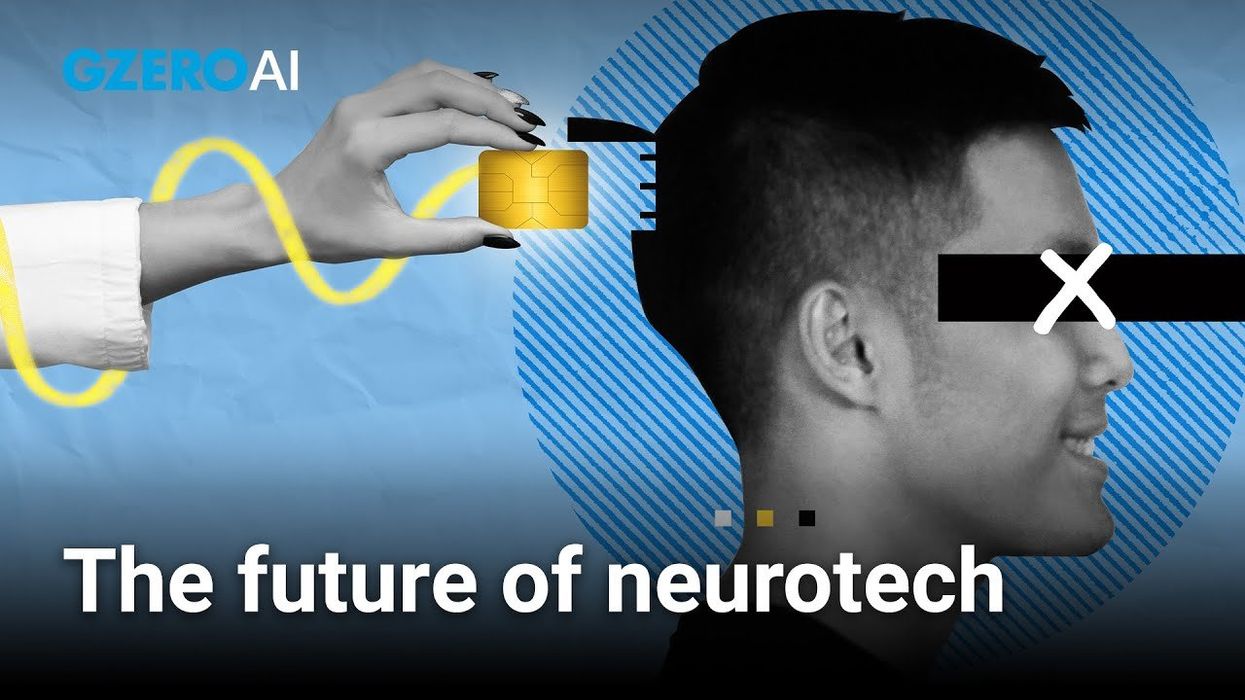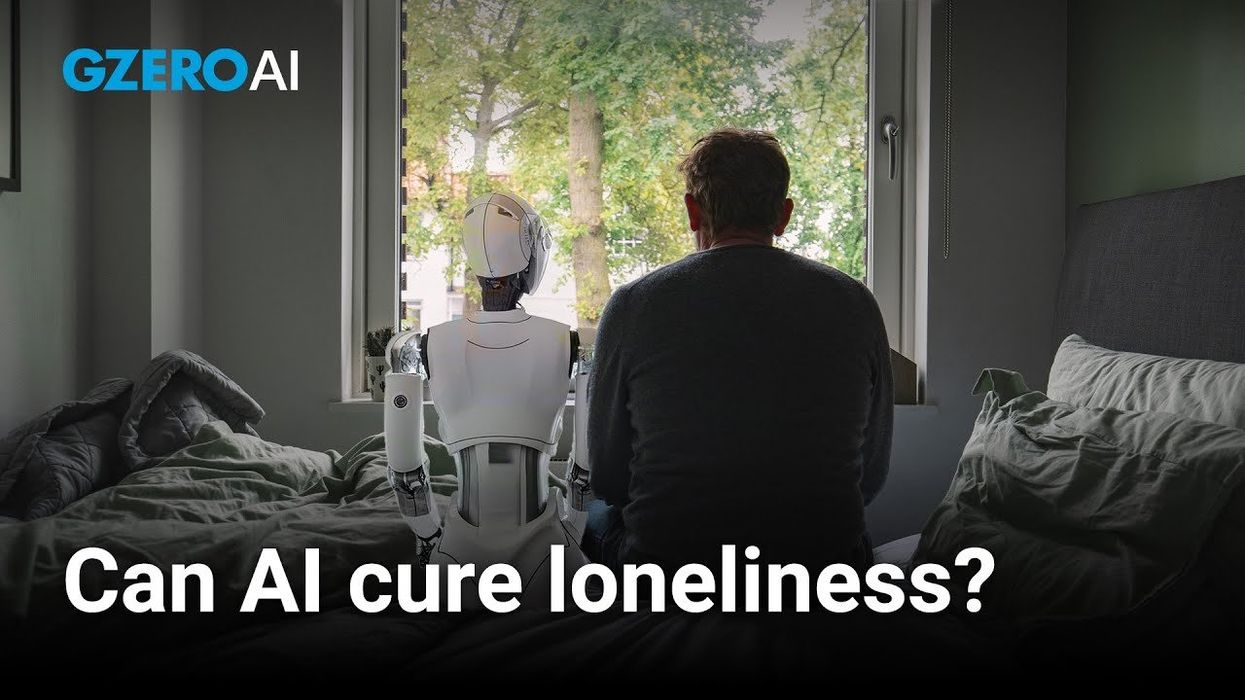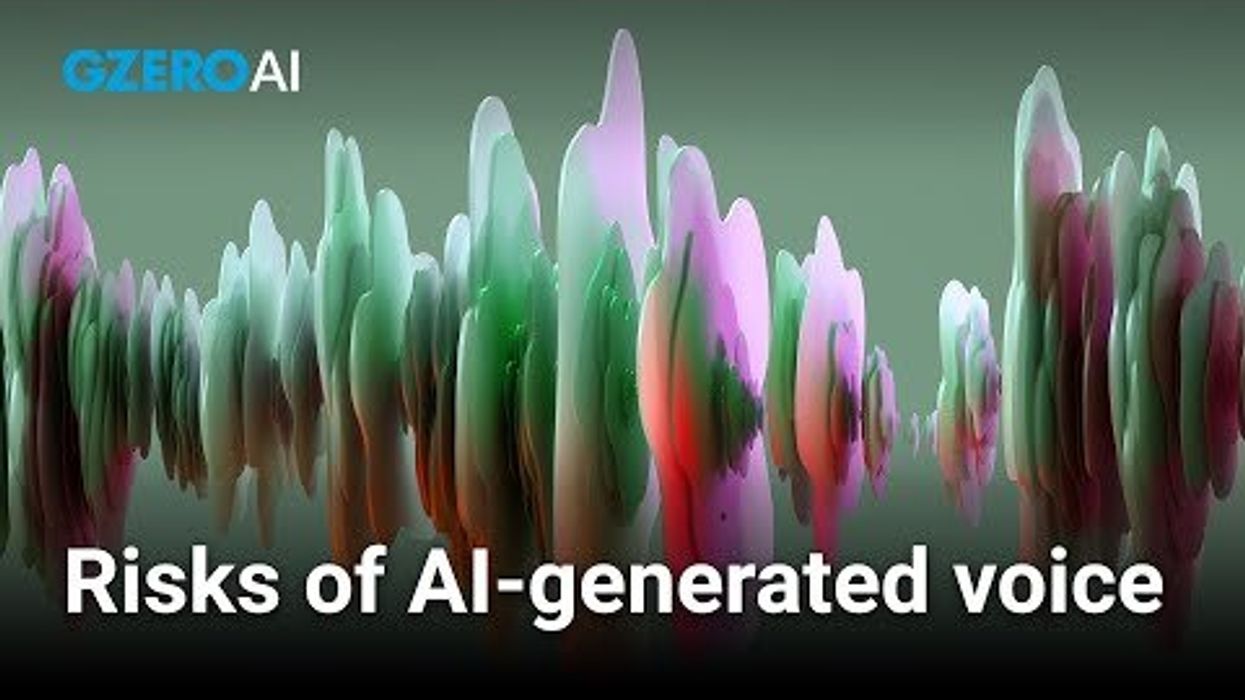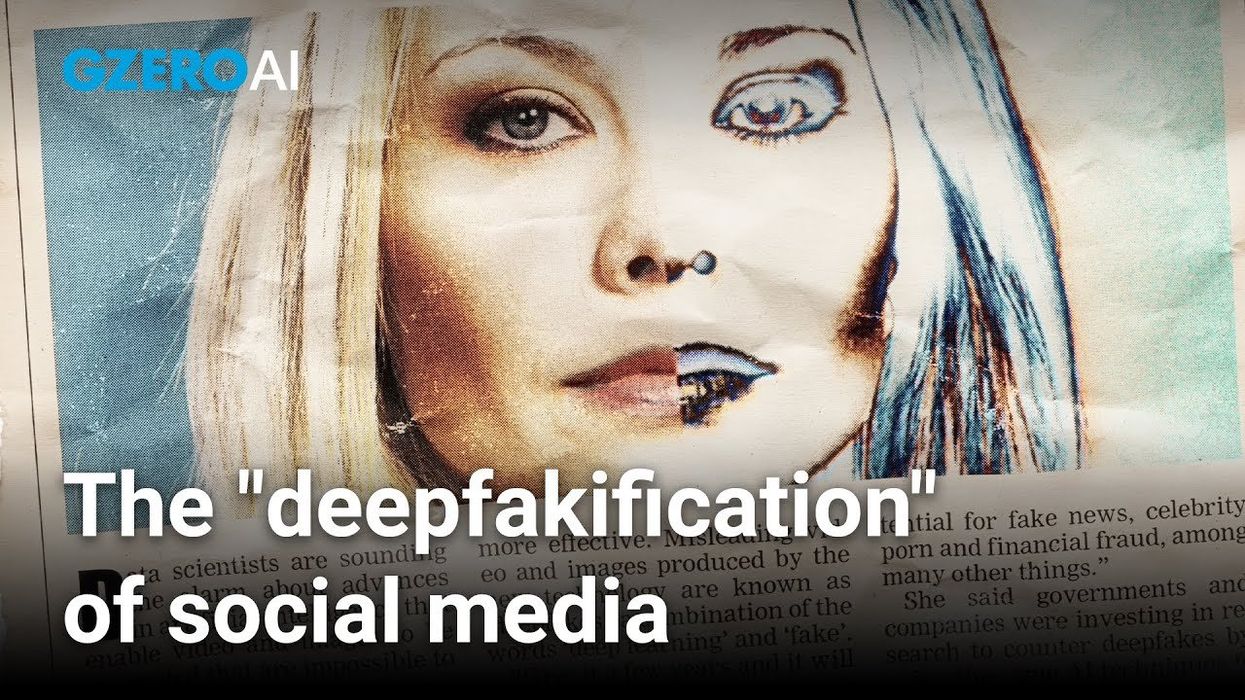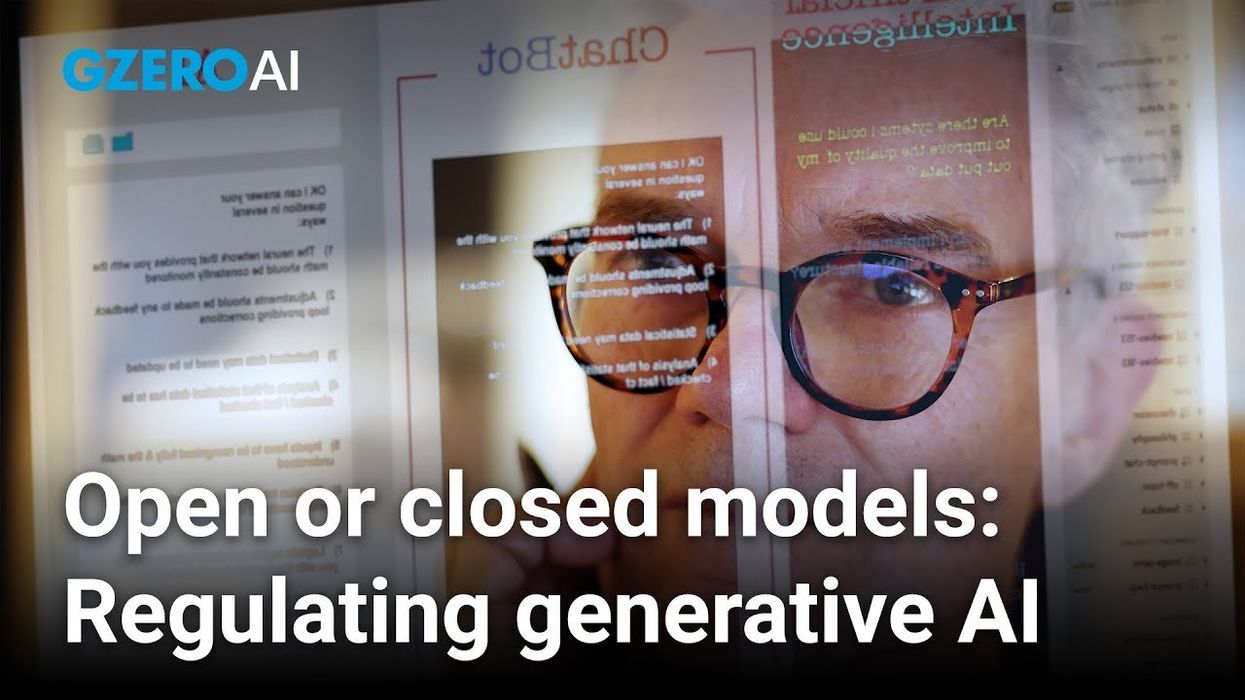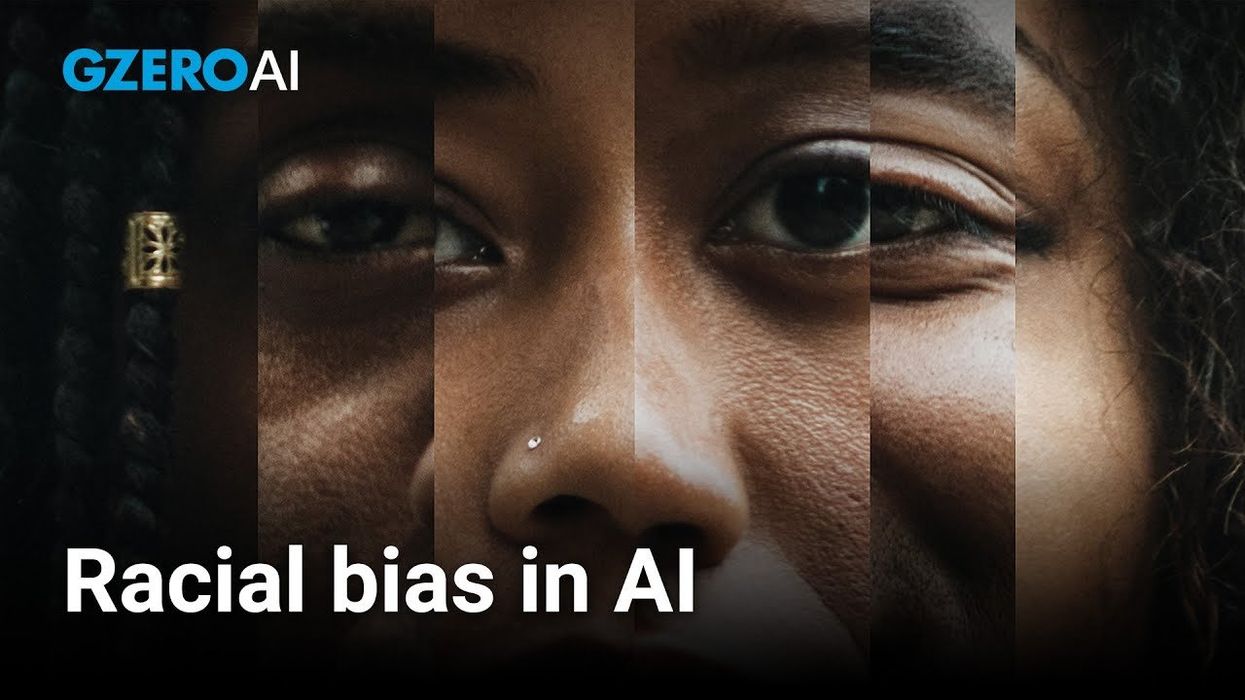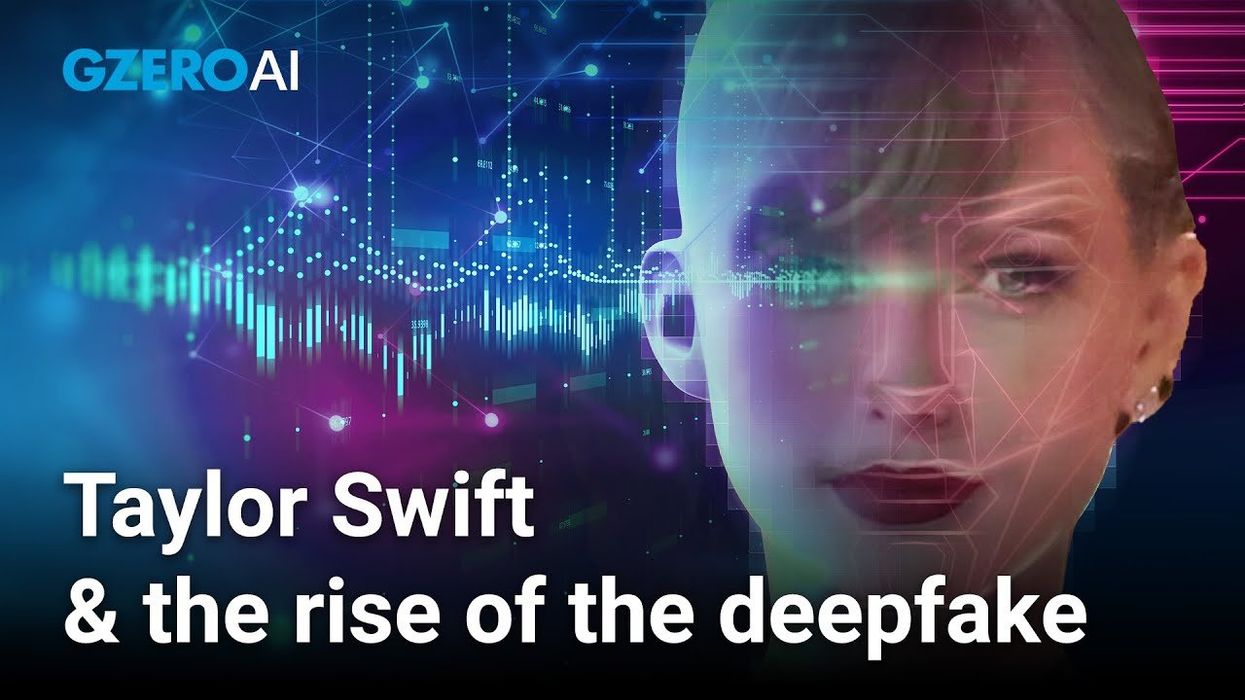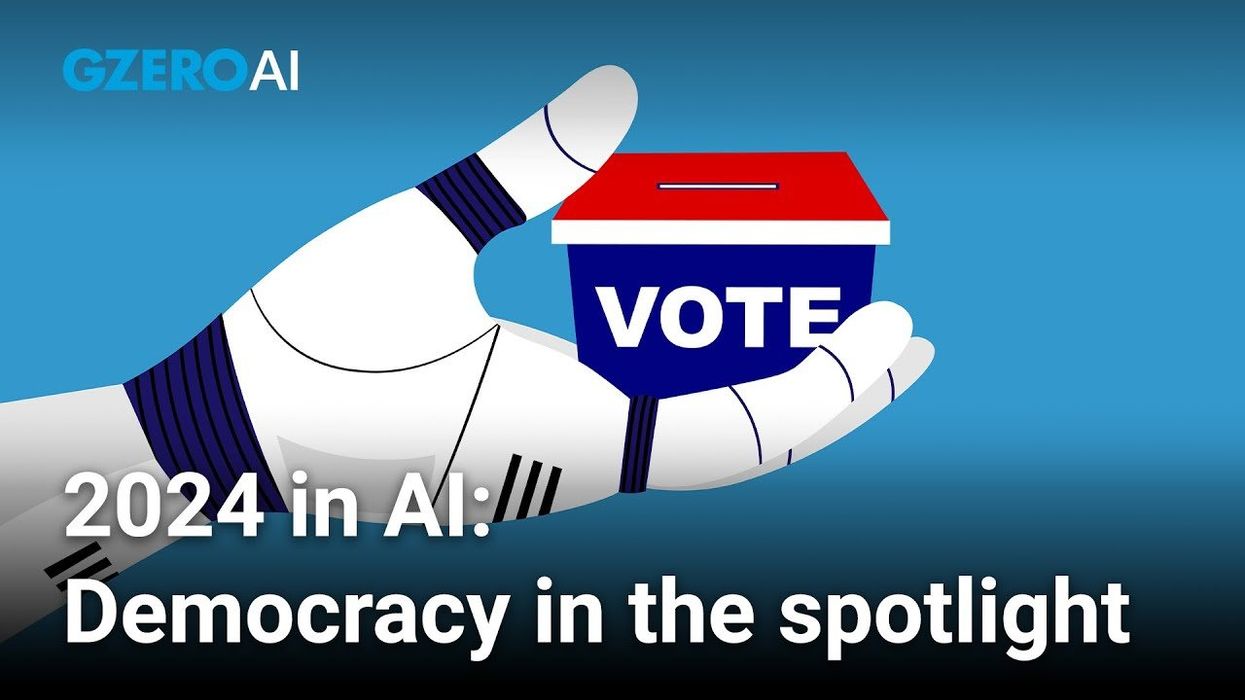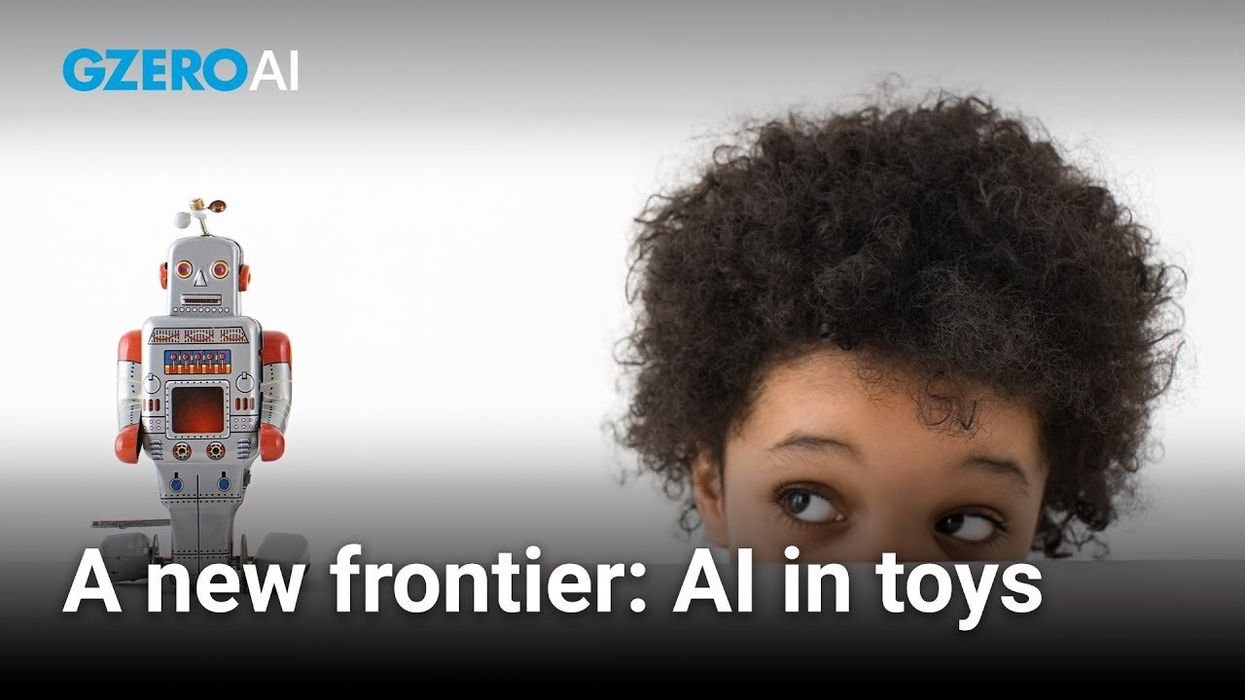VIDEOSGZERO World with Ian BremmerQuick TakePUPPET REGIMEIan ExplainsGZERO ReportsAsk IanGlobal Stage
Site Navigation
Search
Human content,
AI powered search.
Latest Stories
Sign up for GZERO Daily.
Get our latest updates and insights delivered to your inbox.
Global Stage: Live from Munich
WATCH RECORDING
GZERO AI Video
GZERO AI is our weekly video series intended to help you keep up and make sense of the latest news on the AI revolution.
Presented by
In this episode of GZERO AI, Taylor Owen, professor at the Max Bell School of Public Policy at McGill University and director of its Centre for Media, Technology & Democracy, takes at a look at the Canadian government’s Online Harms Act, which seeks to hold social media companies responsible for harmful content – often generated by artificial intelligence.
So last week, the Canadian government tabled their long-awaited Online Harms legislation. Similar to the Digital Services Act in the EU., this is a big sweeping piece of legislation, so I won't get into all the details. But essentially what it does is it puts the onus on social media companies to minimize the risk of their products. But in so doing, this bill actually provides a window in how we might start regulate AI.
It does this in two ways. First, the bill requires platforms to minimize the risk of exposure to seven types of harmful content, including self-harm content directed to kids or posts that incite hatred or violence. The key here is the obligation is on social media platforms, like Facebook or Instagram or TikTok, to minimize the risk of their products, not to take down every piece of bad content. The concern is not with all of the each individual pieces of content, but the way that social media products and particularly their algorithms might amplify or help target its distribution. And these products are very often driven by AI.
Second, one area where the proposed law does mandate a takedown of content is when it comes to intimate image abuse, and that includes deepfakes or content that's created by AI. If an intimate image is flagged as non-consensual, even if it's created by AI, it needs to be taken down within 24 hours by the platform. Even in a vacuum, AI generated deepfake pornography or revenge porn is deeply problematic. But what's really worrying is when these things are shared and amplified online. And to get at that element of this problem, we don't actually need to regulate the creation of these deepfakes, we need to regulate the social media that distributes them.
So countries around the world are struggling with how to regulate something as opaque and unknown as the existential risk of AI, but maybe that's the wrong approach. Instead of trying to govern this largely undefined risk, maybe we should be watching for countries like Canada who are starting with the harms we already know about.
Instead of broad sweeping legislation for AI, we might want to start with regulating the older technologies, like social media platforms that facilitate many of the harms that AI creates.
I'm Taylor Owen and thanks for watching.
Keep reading...Show less
More from GZERO AI Video
Europe’s AI deepfake raid
March 04, 2025
AI's existential risks: Why Yoshua Bengio is warning the world
October 01, 2024
How is AI shaping culture in the art world?
July 02, 2024
How AI models are grabbing the world's data
June 18, 2024
Can AI help doctors act more human?
June 04, 2024
How neurotech could enhance our brains using AI
May 21, 2024
OpenAI is risk-testing Voice Engine, but the risks are clear
April 03, 2024
Should we regulate generative AI with open or closed models?
March 20, 2024
Gemini AI controversy highlights AI racial bias challenge
February 29, 2024
When AI makes mistakes, who can be held responsible?
February 20, 2024
AI & human rights: Bridging a huge divide
February 16, 2024
Taylor Swift AI images & the rise of the deepfakes problem
February 06, 2024
Will Taylor Swift's AI deepfake problems prompt Congress to act?
February 01, 2024
ChatGPT on campus: How are universities handling generative AI?
January 23, 2024
Davos 2024: AI is having a moment at the World Economic Forum
January 16, 2024
AI in 2024: Will democracy be disrupted?
December 20, 2023
New AI toys spark privacy concerns for kids
December 12, 2023
GZERO Series
GZERO Daily: our free newsletter about global politics
Keep up with what’s going on around the world - and why it matters.


